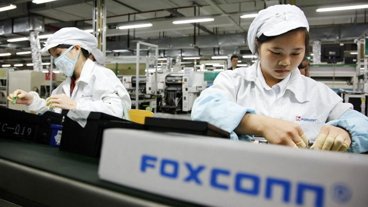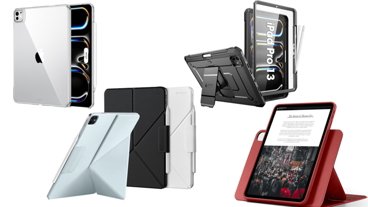Microsoft shoots down Windows Phone 7 tablet hopes, says tablets are PCs
Speaking at Microsoft's Worldwide Partners Conference, Windows Phone president Andy Lees argued that consumers “want people to be able to do the sort of things they do on a PC on a tablet.â€
"We view a tablet as a PC," he said.
As such, Lees maintained that using the OS Microsoft built for phones on a tablet would be "in conflict" with its belief in having the complete power of a PC on any design.
A few years back, virtually every tablet on the market ran some flavor of Windows. That quickly changed with the advent of the iPad in 2010, which took just 9 months to eclipse a lifetime of prior Windows Tablet PC's sales. Since then, Windows-based tablets have continued to plummet, and now account for a meager 1 percent or less of the overall market, according to market research firm IDC.
During his keynote speech, Lees instead turned his focus to Windows 8 OS and its expected networking and printing support enhancements, which he expects will drive adoption of Windows tablets moving forward, adding that the software will run on “systems on a chip†designs.
In time, he expects that PCs, tablets and phones will come together into a “unified ecosystem.†Lees' remarks echo comments made by CEO Steve Ballmer earlier this year promising that "Windows will be everywhere on every device without compromise."
Windows 8, expected to launch sometime in 2012, will be the only tablet OS issued by Microsoft. It is also suspected that when the next incarnation is released, Windows Phone 7 will be faded out and replaced completely by Windows 8. Ballmer admitted on Monday that sales of Windows Phone 7 have gone from "very small to very small," though he believes the company will make "a lot of progress" in the smartphone market going forward.
At first glance, Microsoft's next-generation operating system looks very similar to the recently released phone platform, especially given the included touch-centric interface.
Windows 8 was announced by Mike Angiulo, corporate vice president of Windows Planning, Hardware and PC Ecosystem at Microsoft, during a technical demonstration in early June this year. In a move seen as an attempt to break into the tablet market, the company has designed the new OS to run on ARM-based architectures in addition x86.
According to Angiulo, Windows 8 aims to make the “user experience a natural extension of the device, from the time you turn on your PC through how you interact with the applications you know and love.â€
 Blake Steven
Blake Steven













 Amber Neely
Amber Neely
 Thomas Sibilly
Thomas Sibilly
 AppleInsider Staff
AppleInsider Staff
 William Gallagher
William Gallagher
 Malcolm Owen
Malcolm Owen
 Christine McKee
Christine McKee










89 Comments
With that logic, you then must change the 20 million Macs sold each year and move that upwards towards 60 Million.
Now that 350 Million PCs next to 60 Million Macs looks let dominate.
By next year the iPad will probably be pushing the total Macs upwards towards 90 - 100 million.
Still not worried?
I think this has been clear since they said that Windows 8 would run on ARM processors, and have the option of a Windows Phone 7-esque front-end.
Of course it is a mistake and error for them to be making. It paints Windows Phone 7 as a dead-end operating system for one, even though in reality it's tablet/touch features will migrate to Windows 8 just like iOS features are entering Mac OS X.
Also Windows 8 on a tablet might be fine, but legacy apps will remain a complete pain to interact with in tablet mode, nevermind Flash, etc, which don't understand touch vs mouse pointer.
Windows 8 tablets will therefore be doomed to be dual-mode devices. Dock them, and they behave like a slow desktop PC. Undock them and they behave like rather bit bloated tablet. At least the same data will be available to both front-ends, and I presume that Office will provide a tablet UI as well as a desktop UI... it will, won't it? I mean, iWork has done that for a year...
"virtually ever tablet"
Typo - should be virtually every tablet
Actually many M$ bashers have grabbed a hold of this story and expounded the usual rants. Point is that he is correct. How long did we have to listen to Google/pundits repeatedly say that Android 2.x was NOT a tablet OS. There is obviously a difference between the user experience on a tablet and a phone. Since Apple designed it right from the get-go, they could leverage effectively a single OS on both platforms. Google and M$ didn't share that same foresight. If anything else, M$ is doing the right thing based on what Google went through. Don't get side tracked by the press/vocal minority. Concentrate on the bigger picture because reactive answers will be trounced soundly and are a non-starter.
"Tablets are PC's", well, that's marketing speak, and why not? Everyone (at least Apple fans) seem to be thinking "oh, here they go again, trying to elevate tablets as touch PC's", when, if you listen carefully, what they're talking about is really migrating PC's (at least the OS) closer to tablets. Which, if you look at Apple with Lion, they are not alone in doing.
With that logic, you then must change the 20 million Macs sold each year and move that upwards towards 60 Million.
That's priceless - by their own definitions their PC marketshare is decimated.